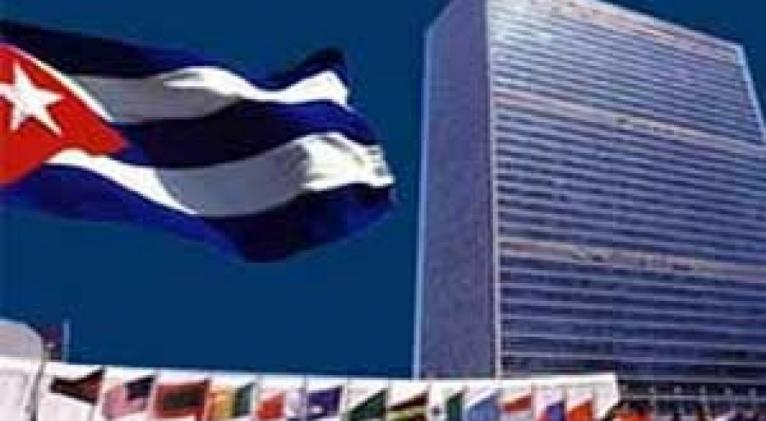Cuba Demands Transparency in Election of UN Secretary General
especiales

Cuba today demanded at the United Nations a more transparent and inclusive process to choose the name of the Secretary General. During the third meeting of the year at the Ad Hoc Working Group on the Revitalization of the General Assembly, Cuban diplomat, Tanieris Dieguez, criticized the role of the Security Council in the election of the Secretary General. She described it as "an undemocratic, non-transparent and non-participative."
According to the Cuban official, the General Assembly should have a central role in the process because it represents 193 member states.
Dieguez insisted that the selection of the post should not be under the exclusive jurisdiction of the Security Council and that the General Assembly cannot continue to merely play a formal role.
"It is crucial to hold consultations with member states to examine and assess the candidates before submitting them to the Council, and interaction with the candidates is also crucial to evaluate their ability and their commitment to the purposes and principles of the UN Charter," she said.
According to the Cuban official, steps have been taken in the right direction, but they are still insufficient.
Based on resolution 69/321 of the General Assembly, and in line with the claims for more transparency, the organization this year activated a mechanism that envisages the participation of governments and civil society in the process to elect the replacement for the current Secretary, General Ban Ki-moon, who is scheduled to conclude his second term this year.
The initiative includes the disseminating of the candidates biographies and their interaction with the international community in order to democratize the process.
However, the president of the General Assembly in its 70th period of sessions, Mogens Lykketoft, admitted that it is unlikely for the Security Council, mainly its five permanent members with veto power (The United States, Russia, Britain, China and France) to give up their major role and influence.
For the time being, seven candidates have been made public, including the former Foreign Minister of Moldavia, Natalia Gherman; the Executive Director of Unesco, Irina Bokova (Bulgaria); the Croatian Foreign Minister Vesna Pusic; the ex president of the General Assembly Srgjan Kerim (Macedonia); Deputy Prime Minister and Foreign Minister of Montenegro, Igor Luksic; ex President of Slovenia, Danilo Turk; and former UN High Commissioner for Refugees, Antonio Guterres (Portugal).













Add new comment